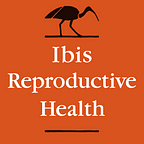Tipping the balance in favor of women’s health
By Terri-Ann Thompson, Ph.D.
In the midst of a global pandemic, Americans across the country have been laser focused on public health news. But with state and local governments and the health care industry focused on treating and preventing COVID-19, the lack of supportive health policies for women and families has become clear. With attempts by anti-abortion officials to exploit the crisis to further their own agendas, access to critical reproductive and sexual health services has gone from difficult to impossible for many Americans.
Unfortunately, this does not come as a surprise. It fits a pattern that is years in the making. In a recently-released website, Ibis Reproductive Health and the Center for Reproductive Rights found a low number of supportive policies for women’s and children’s health in states with many abortion restrictions. We evaluated states based on policymakers’ priorities — more specifically, the number of supportive health policies that aid pregnant women, promote children’s health and safety, and support family financial health; in comparison to abortion restrictions that target when, where, and how abortion can be provided and covered. The data from the Evaluating Priorities report is now available online, as a resource for advocates and policymakers to understand and shift policy priorities in favor of women’s health and well-being.
While policymakers have lagged behind in introducing or enacting policies that would support women’s and families’ health, they have worked overtime to pass abortion restrictions. Since 2011, more than 450 laws restricting abortion have been enacted, bringing the United States to a total of 1,271 since Roe v. Wade was decided. While the restrictions vary in scope, from gestational age bans to bans on reasons for seeking an abortion, a clear pattern has emerged. States in the South and Midwest have grown more restrictive while those in the Northeast and West have reinforced protections for women’s health.
What we learned is in stark contrast to the claims of anti-abortion politicians who have passed abortion restrictions under the guise of protecting women’s, children’s, and families’ health and safety. The Evaluating Priorities website shows that the same policymakers who enact abortion restrictions have failed to prioritize the health of women and children by enacting policies that would truly address the challenges they face.
The evidence is clear — placing abortion care out of reach carries significant consequences for women’s well-being. Findings from The Turnaway Study, which looks at the effects of receiving versus being denied a wanted abortion, demonstrate that being denied an abortion reduces women’s and their children’s financial security and safety. In contrast, women who have autonomy over the timing of their pregnancies experience better maternal bonding and are less likely to live in households below the federal poverty level.
Together, these findings show how abortion restrictions — and policymakers choosing to prioritize them above supportive health policies — place women’s immediate and long-term well-being at stake and make it harder for them to access and exercise their right to reproductive health care.
In states where it is harder for women to make choices about their pregnancy and to have a safe abortion, we also see that there are fewer policies in place that could support them and their children before, during, and after pregnancy. Many of the supportive policies our research tracked, including increased Medicaid eligibility limits for pregnant women, have been shown to increase healthcare coverage of pregnant women, and reduce infant mortality and low birth weight. When these policies are not in place, families are placed at further disadvantage because of their poor health experience.
As we reshape our lives and our healthcare systems after COVID-19, let’s take the opportunity to do so in a way that’s right for women, children, and families. We must make clear to policymakers that investing in reproductive health needs to be a priority — both implementing policies that support it and abolishing those that restrict anyone’s power to exercise their human right to live a pleasurable, safe, and healthy sexual and reproductive life.
